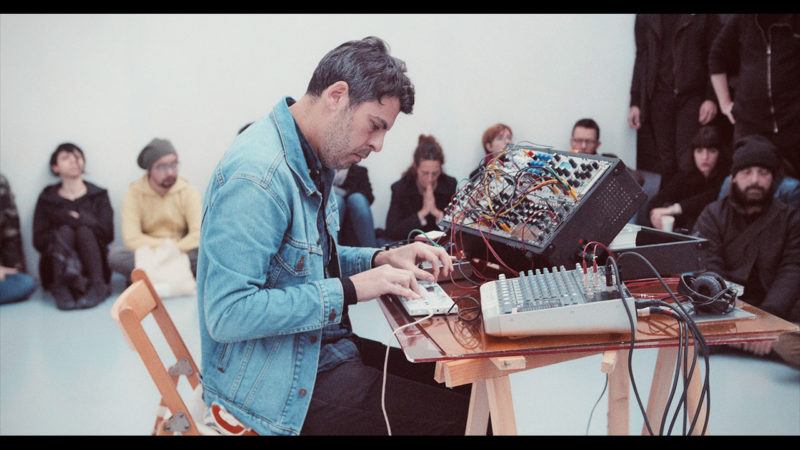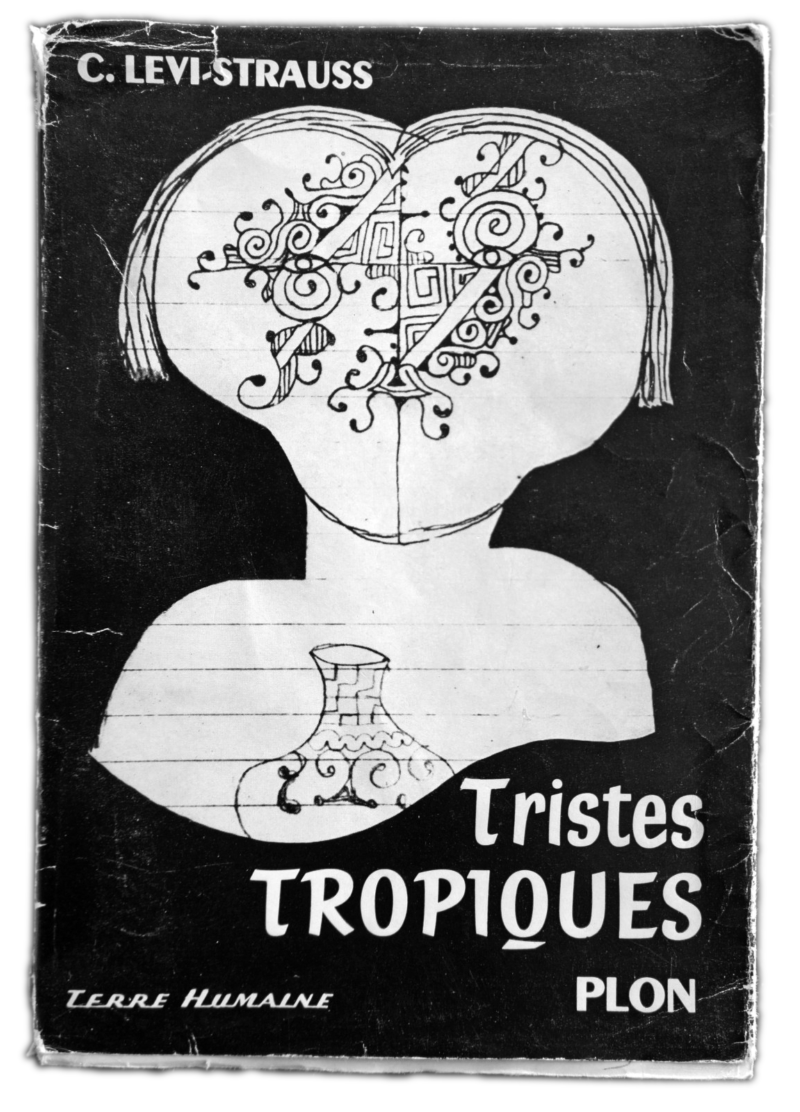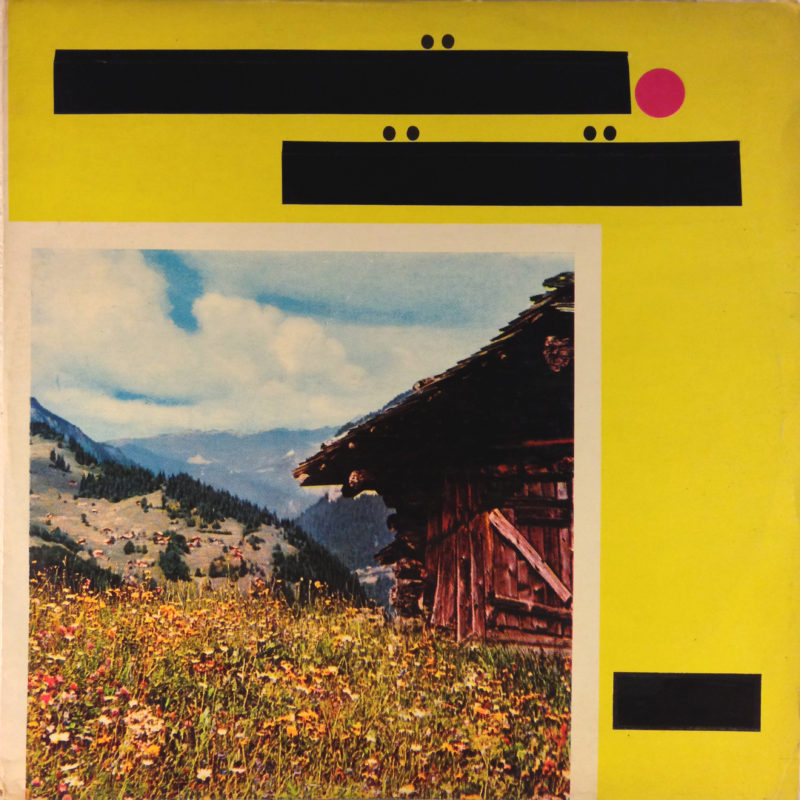Andrew Pekler

On Identity
I checked out the Eastern Daze line-up. I’m a big fan of Susan Alcorn, and a big fan of pedal steel guitar in general. Especially of people who use it with different kinds of techniques and in non-country contexts. But, I see ‘UK’ written next to my name, which is funny. I’m not British, I’ve never lived in the UK. But in the context of ‘Tristes Tropiques’ and the festival, I guess it’s a good question where I’m coming from (laughs).
I’ve spent most years of my life in Germany now, although I wasn’t born here. I grew up in the States, but I wasn’t born there either, but in the Soviet-Union. I’m not Russian either, so you shouldn’t put RU there, because I have an American passport, and I have a German permanent resident status… My own personal biography and that of my immediate family leads me to conclusion that these — at least as far as national identities, or those connected to territory or language, or a political entity — are illusions, accidents of history. I was born in the Soviet Union, in the region that is now Uzbekistan, and so was my sister. We both became naturalized American citizens, when we moved. In my passport it says ‘country of birth: Uzbekistan’, my sister’s says ‘Russia’. The bureaucrat making up the passport thought ‘Ok, USSR… what is this, it no longer exists, what is then its successor state — it’s Russia’, although she never was citizen of Russia, but of the USSR. Our country of birth becomes just a banal accident. Ultimately, the notion of nationality is in the best case meaningless, in the worst case its very harmful.
I can go on, my father for instance is Jewish, he is not religiously so, even from the question if Jewishness is an ethnic entity, or a cultural, or a religious, seventy years ago in Germany I would have been half-Jewish. That is, Jewish enough for Auschwitz, to put it crassly. But for the State of Israël I am not Jewish enough to apply for citizenship [because Israel relies on the traditional religious definition of Jewishness as determined matrilineally] . These things are kind of arbitrary… Identity is, in every sense, too fluid and contingent to think of it as something permanent or concrete. For me, my socialization, and the kind of ‘milieu’ in which I was brought up is much more significant. My identity is the formal and informal education, and my experience in life. I have certain ties to certain places, because I lived there, but I have no allegiances to any piece of land. So you can put UZ, RU, US or whatever, or maybe you can use NA, i.e. non applicable’, or something?
On Tristes Tropiques
Claude Lévi-Strauss’ book ‘Tristes Tropiques’ inspired me first and foremost because it’s a brilliant book. It’s an interesting and fascinating text on different levels: you can read it like a novel, a travelogue, an autobiography, or like a philosophical treatise. Of course it’s also Lévi-Strauss setting out the basic ideas of his structuralist anthropologist theories. From what I understand, those — in the exact way Strauss has put them — are no longer really relevant in anthropological sciences. Ethnographers don’t use his ideas anymore to describe how thought is structured in a society and how that affects how a village is physically set up, and how the relations between different groups in a society are set up… People don’t take those ideas of his so literally anymore.
But, he was among the first anthropologists to question empiricism itself, and among the first who was critical about Western scientific thought in general; and about what the so-called civilized West does to the rest of the world. It was the beginning of post-colonial thought.
I hadn’t read the book until a few years ago, and it really fascinated me. Also in a very banal sense it has a very beautiful and evocative title, so in this very small way I wanted to use it and I thought maybe some people would discover the book through the record.
In another sense, what I took from the book and applied directly to the music developed kind of in parallel. At the time of reading the book, I was trying out these kind of structural musical ideas about mirroring and double symmetry. Basically I took field recordings and processed them in such a way as to make them sound synthetic, and vice versa. I tried to make synthesized sound appear to be organic, natural, acoustic, etc.. I took two opposites and transformed them into each other. But also at the same time I left it slightly open, so that it always remains a bit uncertain what what is.
Symmetry and mirrors, and symmetrical structures come up again and again in the book. Making the music with this idea in mind, with this kind of formal constraint in mind, that was a good enough connection to use the title. There’s not really more to it than that…

Towards Internal logic
It interests me most when both the content and form of a work are artfully manipulated. That is the thing that gets me going. I cannot just ‘jam’. I always need an idea, even if it is a really abstract idea, to work around. Some formal constraint is essential for me to start. Often, it starts with a kind of joke, and I play with it to see how far that can be taken — literally.
For instance, I did that for the album that was called ‘Cover Versions’. It started with the words in the title. As a lifelong record buyer and having worked often in record shops, I quite like the vinyl LP as an object, and I was always fascinated by the non-musical aspects of records — the design, the variations in print quality from different eras and regions, the liner notes, etc.. You know the pre-internet feeling of being fascinated by something just because of the cover, without any other information.
I wanted to incorporate these non-musical aspects into a musical context so I did a 300 copy limited run, in which every vinyl had a different cover. To get these, I went around second hand shops and thrift stores and just bought records of which I liked the covers as cheaply as possible. Of course it became a collection of mainly light classical, light pop music and ‘Volksmusik’ records — as you find them everywhere in Eastern Germany and Berlin. I started cataloguing the records by the type of cover, in which I quickly found a few motifs that kept repeating. Landscape photographs, still lifes — like a floral arrangements —, seascapes, and a few were purely abstract… My favorite was the motif of couples, mostly in silhouette on the beach. I covered up any text that was on these second-hand covers I was using with colourful stickers. So all the covers had that in common. The music itself was made out of random samples from these records which I used as the basic material to make the tracks – so a parallel constraint on the level of sound.
For the presentation, I converted an art gallery here in Berlin into a record shop for a few weeks, and sorted the records per motif — instead of by genre. That was how I could take the idea of the phrase ‘Cover Versions’ as far as possible, that was my most thorough exploration of a formal constraint, so far.

Back to Lévi-Strauss
In a structuralist sense, you could say that for the ‘Covers Versions’, and also for other music and projects, I deconstruct the relation between sign and signifier. Although I never have been sure what precisely is meant by ‘deconstruction’. Or maybe it’s no longer such a useful term anymore. We’re so used nowadays to a context where everything is so information-dense, that it’s either impossible to deconstruct anything, because the structure usually provides so much context, that it’s hard to put it in another context. 50, 60 years ago, when ‘meaning’ was more fixed, it might have been possible… basically when everyone agreed on what the rules are, it’s possible to circumvent the rules, and that would be the act of deconstruction.
Maybe I’m missing something, but I’d rather make work that is a closed system in itself, with a certain internal logic — however simple or banal. It can point to things outside itself — if you see the covers of ‘Cover Versions’, it perhaps makes you aware of the fact that, the way in which an artifact is packaged, influences how you hear it. The installation was a record shop with 300 copies of the same album, each with a different cover. People came in, and browsed the copies, as if they are each a different album. They kept picking each record up and turning it over, although the backside was the same. Like in a regular record shop, people flip through them and pull out one that they find appealing. So people find themselves doing this absurd thing, maybe in a way that points to behaviour and mechanisms that are outside the internal logic of the music. What I think I do for every record, is building this internal and aesthetic logic that is coherent in itself… But that sounds terribly pretentious, no?
On Anthropology
I realize that with my most recent album, I touch upon what Yannick Dauby, Lieven Martens and Spencer Clark are working on, which is a kind of musical anthropology and ethnography. It’s certainly an attractive field of associations. Maybe it’s because those fields of science are strongly associated with these romantic narratives of discovery of unknown, mysterious worlds, and on the other hand this idea of nobility and purity of people ‘unspoiled’ by civilization that adds some kind of extra quality. I guess ultimately, the idea of music influenced by anthropology or ethnography is a kind of engagement with the world through (paradoxically) an escapist fantasy. That’s what it is for me anyway – through music I want to be taken to this other plausible world. I’m not purporting that the music I made is from a particular real place or society, but I want the fantasy to feel real – not “realistic”, but real like a dream feels real.
On The Universal Language
Alessandro Bossetti published an interesting book called African Feedback, which collects the reactions of people he meets travelling in Africa, for whom he plays some classics of the European, Western avant-garde canon. He asks them to comment on those pieces and it’s quite interesting to read how people with little prior knowledge of the constructs being deconstructed, in the pieces react to them.
I think it’s interesting how musicians like Afework Negussi see that music is some sort of a universal language idea… But I have a bit of problem with the metaphor. I think in some way that it’s right, but then you’d have to add that music is a universal language in the specific sense that all cultures have music, which means you can recognize something as music, however that doesn’t mean that you understand it in the same way you understand the music that you’ve grown up with. I observe this in myself when I’m listening to ethnographic recordings. I can’t honestly say I understand let’s say Malawian music in the same way I understand an American pop song. I can hear the vocabulary but I don’t understand the grammar of it. That is, I perceive the content, but at least initially, I can only vaguely grasp the rules being used (or ignored) that determine which form it takes. And what actually happens is that I superimpose my own previous experiences of how music is put together (the grammar I am familiar with) onto this material. The good thing though is that this doesn’t make my listening experience any less pleasurable or interesting. In fact, for me the pleasure is often in these moments of superimposition. So yeah, that’s why I always question this metaphor of music as a universal language – it’s certainly universal but I don’t believe everyone ‘understands’ every instance of music in the same way. Of course, you can quickly familiarize yourself and learn a new language, but still it’s very hard to become fluent, knowing all the nuances.